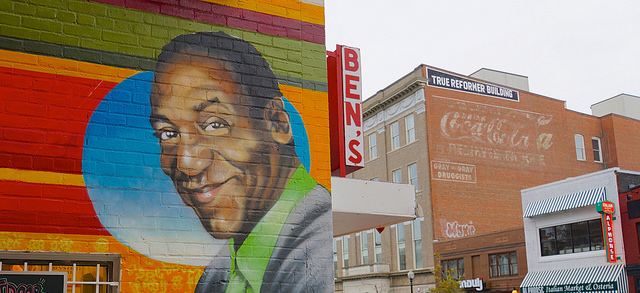It’s not even the end of the week, but it’s probably safe to say that this is a week that Bill Cosby wishes he could forget.
On Monday, a judge released testimony in a 2005 civil case in which Cosby admitted under oath that he obtained quaaludes, in order to give them to women that he wanted to have sex with.
While he did not admit to actually drugging anyone—his attorney had instructed him not to answer that question—the implications were damning.
Last year, the public became aware that a number of women were claiming that Cosby drugged them and sexually assaulted them (or attempted to do so). The women ranged from the famous—former supermodels Beverly Johnson and Janice Dickinson—to the unknown. Some of the claims went back as far as 40 years, but in each case, the stories were chillingly similar.
At first, many media outlets seemed reluctant to cover the accusations, but the story soon came to dominate the headlines as more and more women came forward to tell their stories. (At present, 48 women have gone public.)
Along with Cosby, those who knew him either personally and/or professionally have been in the spotlight as well.
This week, singer and actress Jill Scott—who called him her mentor and defended him last year—tweeted a few days ago that she had been wrong to defend him. Scott wrote, via Twitter: “Sadly his own testimony offers proof of terrible deeds, which is all I have ever required to believe the accusations.”
However, another well-known woman who also defended Cosby refused to apologize. On Wednesday, actress and The View host, Whoopi Goldberg, compared what was happening to Cosby to the 2006 Duke Lacrosse case, in which three men were falsely accused of rape.
The previous day Goldberg stated that, “No one has convicted him—he has not been arrested. The bottom line is, that’s the law. Innocent until proven guilty.” (On a related note, Goldberg’s co-host Raven Symone, who co-starred with Cosby on The Cosby Show, said she was declining to state her opinion—although she did call the recently unsealed court documents “real facts.”)
As someone who lives within walking distance of the University of Virginia and knows all too well how damaging false rape accusations can be after living through the Rolling Stone debacle—I could not help but be saddened by Goldberg’s reaction. Not to mention, the reaction of some people I know, who have made similar comments about Cosby “not having been convicted in a court of law.”
While celebrities can sometimes be the target of false accusations, it’s rather incredulous for people to accept that all 48 women are lying—especially when Cosby admitted to procuring drugs in order to give them to women he wanted to have sex with.
As one friend of mine wrote on Facebook, “Where there is smoke, there is fire, and this story has more smoke to it than the Great Chicago fire.”
Ultimately, it seems like this denial, and unwillingness to admit that these allegations against Cosby may be true, has to do with the problem of separating Bill Cosby “the man” from Bill Cosby the “public persona.”
As a fatherless child growing up in the 1980s, I saw Cosby as a sort of father figure. He was the nice man from “Picture Pages” and like millions of other kids, I wanted Dr. Huxtable to be my dad. I was shocked by the allegations against him, so I can only imagine what it was like for those who actually knew or worked with him.
Cosby’s former co-star, Phylicia Rashad said earlier this year that she believed the accusations were an attempt to destroy his legacy. Rashad said, “We’re talking about a legacy that introduced and portrayed American culture in its diversity. It’s difficult for me to watch this legacy be erased as if it never happened.”
Perhaps.
Still, I would argue it would have been far worse had none of these claims ever been brought to the public’s attention, and the women’s stories remained unheard as if they had never happened.
Coming forward as a rape survivor is hard.
It’s even harder when the person accused is a famous, beloved icon like Cosby.
While no one can deny that Cosby is a pioneer in terms of his contributions to pop culture, there is also no denying that the real person behind this may be very different from his carefully crafted persona.
At the very least, his admission shows he’s not the wholesome family man he tried to suggest he was.
Interestingly, the judge who released the seal court testimony said it was Cosby’s stance as a moral crusader that lead him to do so. Judge Eduardo Roberno wrote:
“The stark contrast between Bill Cosby, the public moralist and Bill Cosby, the subject of serious allegations concerning improper (and perhaps criminal) conduct, is a matter as to which the AP—and by extension the public—has a significant interest.”
Therefore, rather than blame the women bringing forth the allegations, perhaps his defenders should blame Bill Cosby, and consider the possibility that they never really knew him after all.
Relephant:
Bill Cosby’s Own Words are Damning & Yet the Headlines Refuse to Use the Term Rape.
.
Author: Kimberly Lo
Editor: Yoli Ramazzina
Photo: Flickr/Ted Eytan











Read 0 comments and reply